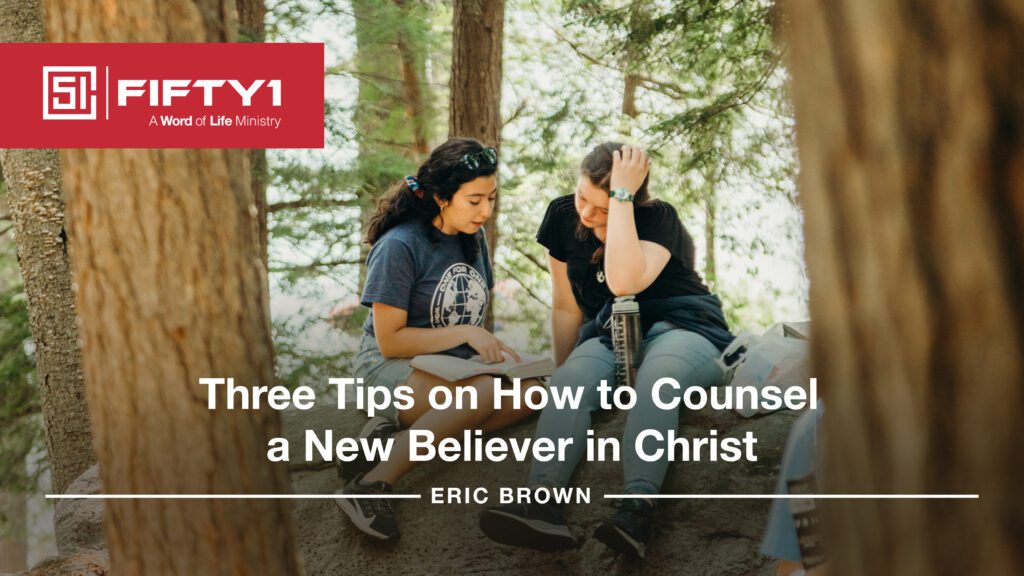Counsel. Counselor. Counseling. I remember years ago when I was asked to counsel someone after an evangelistic event. I was suddenly filled with a lot of different emotions. Fear, uncertainty, and inadequacy are a few emotions that came to mind. What do I say? What do they say? What should they say? What if I mess up? The seriousness of talking to someone who may or may not have placed their faith in Christ weighs heavily on the counselor. How does one deal with the pressure of such an important task without becoming overwhelmed, and perhaps disenchanted, with the counseling process?
Here are some important truths that have helped me gain a proper perspective when counseling someone who has responded to the precious gospel.
1. Remember That You and I Cannot “Save” or “Unsave” Anyone
Paul communicates this succinctly in 1 Corinthians 3:6 when he says, “but God gave the increase.” When you counsel students after an evangelistic message, the gospel seed has either been planted or watered; some students may have even decided to trust Christ with their lives. Your role as counselor, simply put, is to discover what just happened in their lives and to help them on their journey, wherever they are.
2. Ask Open-Ended Questions
Hopefully, you can listen to the speaker as he shares the gospel; this will enable you to refer to the message and illustrations as conversation topics when you counsel.
A great starting question could be, “What did you think of what you heard tonight?” I remember a good friend of mine reminding me not to be afraid of the silence, or “tension,” as he put it, after asking this kind of question. Give the person an opportunity to respond.
You should also be ready with a follow-up question, such as, “Did you place your faith and trust in Jesus Christ tonight?” If they say yes, then you have an opportunity to rejoice with them as well as help them begin their journey as a child of God. Make sure that you provide follow-up information for the youth group or church that brought the student to the event.
If the student doesn’t know, or if they answer no, do not panic! Remember, your role is to discover where they are in their journey. A “no” or an “I don’t know” may mean that either they are unsure how to articulate what just happened, or they have not decided to trust Christ. This is when you have the opportunity to review the main points in the speaker’s gospel presentation. If you discover that the student isn’t interested or ready, this means that you were able to be a part of watering the seed. Awesome! Hopefully, the student’s youth group or church will take it from there.
3. Pray
Do you pray for students in the time leading up to the evangelistic event? Don’t let it stop there! Pray for students after you counsel them. Pray with them on the spot, if possible, and continue to pray for them as the Lord brings them to your heart. If you are fortunate enough to encounter one of these students in your own youth group or church, you have an incredible opportunity to continue a relationship of influence!
As a counselor, you have been given an awesome opportunity to plant, water, or even witness the greatest miracle of all—the salvation of a lost soul. May you be filled with joy and anticipation to see what role God has for you to play in this process.
Eric Brown is the Word of Life area missionary for Northern New England. He and his wife, Lori, have three adult children and currently reside in Oakland, Maine.


